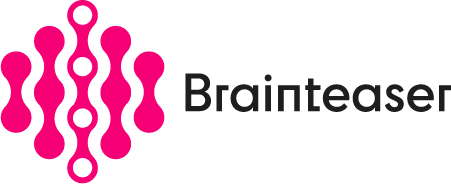BRAINTEASER is excited to take part in the iDPP@CLEF Challenge 2022 happening on 5-8 September, We recently spoke about the event with organiser and full-time computer science professor Nicola Ferro at the University of Padua, Italy.
Continue reading below to learn more about iDPP@CLEF Challenge 2022 and why you’ll want to register!
For those of us who don’t know much about CLEF, can you tell us more about what it comprises and how the iDPP@CLEF Challenge plays a role?
Of course!
CLEF is an international series of evaluation labs that has been ongoing for more than 20 years.
However, iDPP@CLEF 2022 is a more specific challenge within this series that aims to develop AI models that predict ALS progression. ALS is short for amyotrophic lateral sclerosis and has other names including motor neurone disease (MND) or Lou Gehrig’s disease. This neurodegenerative disease leads to a progressive loss of motor neurons and control of voluntary muscles. Because the clinical evolution of ALS is highly irregular, the challenge represents another great initiative to possibly improve care for patients.
What makes iDPP@CLEF Challenge unique is that it provides highly curated, real-world datasets from two hospitals based in Turin and Lisbon. Not only will participants be able to focus on predicting the occurrence of severe impairments, like NIV or PEG, but they can also estimate a time window for the occurrence of such impairments. Also, participants can use our data to submit a position paper on how to make such predictions and AI models explainable.
I’d even say that instead of calling it the iDPP@CLEF Challenge, we should refer to it as iDPP@CLEF Opportunity.
To see the tasks and datasets in detail, please click here.
That sounds interesting, to say the least! But is the event only for a specific group of people or those from a select region?
No, no! Not at all!
We welcome everyone from academia and industry to join. Whether you’re based in France or the United States, the renowned event is an open and extremely welcoming environment for all individuals from around the world.
A leading feature of the iDPP@CLEF Challenge will be the chance for participants to form part of growing communities and build upon each other’s experiences and learnings.
This isn’t, of course, the only benefit of the iDPP@CLEF Challenge. Can you share some of the other perks participants can expect?
There are so many!
First, and perhaps of most interest to many, participants can enjoy access to real, high-quality medical datasets.
Now, just to clarify, it doesn’t mean you need to work only in health. Even if you are just your run-of-the-mill computer scientist working on machine learning, this is an opportunity to play around with the data and apply some of your learned techniques.
Apart from this, participants can compare their own solutions to those developed by other participants in the challenge. This could be of particular relevance for up-and-coming e-Health start-ups who have a product almost ready to go to market and want to leverage knowledge transfer.
“The iDPP@CLEF Challenge 2022 will let participants compare solutions achieved in the event and help speed up the adoption of best-of-breed approaches.”
Finally, the iDPP@CLEF Challenge 2022 is participants’ opportunity to showcase their own work and raise profile visibility amongst the community.
All of this sounds amazing! Please tell us–is this a one-time event or can we expect more of these in the future?
iDPP@CLEF Challenge is, most definitely, not a one-time event!
We’re already planning other iterations. That means that in upcoming events, we’ll extend our datasets to focus also on disease progression prediction for multiple sclerosis (MS) and consider even other kinds of information, like data either related to pollution or that coming from wearable sensors.
Are you interested in registering for the iDPP@CLEF Challenge 2022 on 5-8 September?




